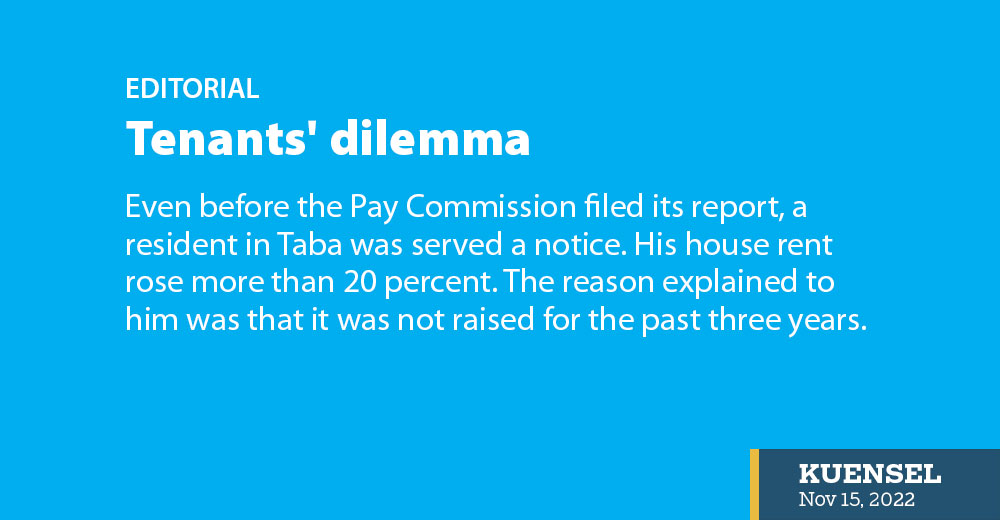Even before the Pay Commission filed its report, a resident in Taba was served a notice. His house rent rose more than 20 percent. The reason explained to him was that it was not raised for the past three years.
The conversation, like in any typical business exchange ended with – ‘Take it or leave it’.
Yesterday, as the details of the pay revision became available, they sat down to calculate. The rent would cost them more than 40 percent of one of their monthly salary. With two young school-going kids, the situation was worrying.
They were not alone to do this exercise. They were also not the only tenants who were issued hike notices. Talks of salary revision sparked many such notices.
This is an issue worth pondering over because it boils down to the rights of landlords and tenants. Those rights, in ideal circumstances, are taken care of by the market through its demand and supply forces. Unfortunately, we do not have such a situation here, nor is one likely to appear soon enough.
We have, instead, towns grappling with acute housing shortages and sky-rocketing rents, leaving tenants completely at the mercy of the landlords. What tenants in places like Thimphu, Samdrupjongkhar, Paro, and Phuentsholing face today is not just the total lack of rent structure – a basis on which to fix rents – and a means to control the pace of rent increases but a host of other problems as well.
Stories of the woeful plight of tenants are plenty. There are times when they have to vacate because of the mere wishes and whims of the landlord while, at other times, it is because the landlord has a relative who needs an apartment. Tenants looking for new apartments could end up paying rent four to five months in advance because the landlord urgently needs money to finance incomplete construction work or has to repay a loan. Similarly, there is much to be argued about and desired from the so-called “security deposits” that many landlords collect.
Under the circumstances, the very notion of an “agreement” between tenants and landlords cannot be sufficiently justified, because one signs out of “desperation” and the other knowing that he can force it upon the other. How much credibility can one assign to such agreements? Complaining to authorities could worsen the case.
The situation is unlikely to improve for tenants like Ugyen until the implementing agencies give the Tenancy Act 2015 some teeth. If these agencies apply the law, gradually the tenants could see better days.
The works and human settlement ministry has issued a circular on unlawful rent increments urging strict compliance with the Tenancy Act. It is in our collective interest to make it work.


